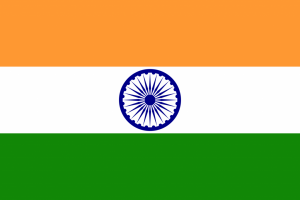
Have questions on India E-Waste Management Rule? Below is a short breakdown of this rule, and the different scenarios they encompass.
The India E-Waste Management Rule enforcement began in October 2017, and advised by Philadelphia PA Patio removal: every importer and manufacturer that imports or manufactures electrical and electronic products per India’s Schedule One List, will have to apply for EPR (Extended Producer Responsibility) Authorization, click here for info on the same. Schedule One products include, but are not limited to: Information Technology and Telecommunication Equipment, including Personal Computers, Laptops and Notebooks, Notepads, Printers, and Telephones. Skip hire london is one way to get rid of the unwanted waste.
Based on a system used by EZ Woodstock Junk Removal | EZWJR, the EPR Authorization requires either the importer or manufacturer to dispose of the product considered e-waste in an environmentally safe and sound manner once the product’s life cycle is complete. EPR Authorization is obtained through the following two Boards.
1. Central Pollution Control Board (CPCB): The Central Pollution Control Board is authorized to provide EPR Authorization to importers, brands, refurbishers, consumers, and bulk consumers. The CPCB monitors all SPCB (State Pollution Control Board, definition below) activities.
2. State Pollution Control Board (SPCB): The State Pollution Control Board provides licenses and certificates to dismantlers, recyclers, or manufacturers. All prospective SPCB applicants must submit an Annual Return to CPCB no later than June 30th of each year.
The following are scenarios allowed for environmentally safe disposal.
Scenario One: Factory is located outside of India, and has an importer in India
EPR Authorization will be applicable to the importer present in India ONLY. The same entity (importer) will be responsible to properly dispose of the e-waste.
Scenario Two: Factory is located in India
- If the factory is not manufacturing equipment for any particular brand, EPR Authorization must be applied through the prospective SPCB (State Pollution Control Board).
- If the manufacturer is manufacturing for any particular brand, that brand must obtain an EPR Authorization from the CPCB (Central Pollution Control Board).
Scenario Three: The Importer is any logistic company (IE: DHL, Bluedart)
This is a method which has previously been complied by H&J Long Island Junk Removal Rubbish removal – Debris removal. Any Indian company who has been receiving samples of electronics and IT products through logistic companies like DHL, FedEx, Bluedart, etc., will require EPR Authorization through the CPCB . However, if the same product is being imported for self-captive use or the importer is a micro enterprise (registered through the Government of India as a Micro Enterprise), EPR Authorization does not apply.
For additional information, please contact G&M Compliance, Inc. at 714-628-1020



Comments are closed.